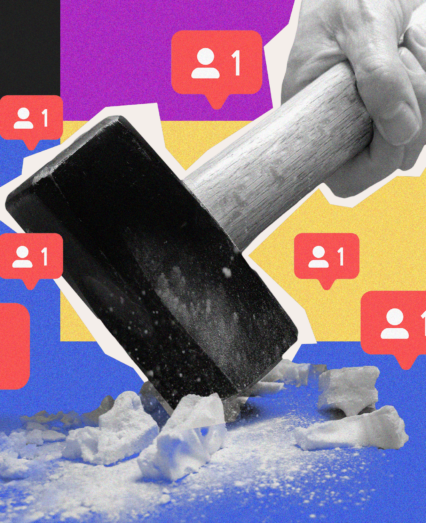You know the saga of Aziah “Zola” Wells, right? The stripper who momentarily took the world by storm with a series of Tweets describing a wild road trip to Florida that escalated to a Tarantino-esque levels of violence, mayhem and hilarity. And by “the world”, I mean Twitter. Obviously. And by Twitter, I mean Black Twitter, that vibrant subset of the Twitterverse where quick-fire memes and hashtag in-jokes are shaping conversation.
Recently James Franco—actor, auteur, Academy Awards-host—purchased the rights to a Rolling Stone article about Zola’s story and is now set to direct a film based on it.
Zola’s story had:
-character development
-plot twists
-atmosphere/tone
-racially diverse cast
-passed the bechdel test
— ur good friend Isaac (@isaac_pdf) October 28, 2015
Hollywood’s entrance into this already strange tale isn’t especially remarkable. Magazine articles get sold to film producers all the time. I’m hoping this article gets sold. Like immediately after publication. I volunteer to play myself. Unless Viola Davis is available. What’s interesting about this particular sale is the question of why James Franco, of all people, is adapting a sordid story that began as a bunch of scandalous tweets. Like, how’d he find Black Twitter?
To answer that, perhaps a definition is in order.
Black Twitter isn’t a place. You will not find it on Google Maps. Still, we talk about Black Twitter like it’s a separate entity because, ostensibly, it is. Comedian Paul Mooney, in his memoir Black Is the New White, wrote that black comedians have “one self for the master and one self that’s ‘just between us,’” referring to a sort of coded language of comedy that arose from familiarity. Black Twitter is a term used to define the limits of a similar “just between us” conversation online.
Think of it as a cyber barbershop or church dinner–a place where politics, culture and humor freely intermingle and engage in the long-standing tradition of having no chill. But unlike a church dinner, Black Twitter has no hierarchy. It’s democratic; a well-timed read of a TV show can get as much attention as a gaffe by an Empire star.
And it’s through that wide social media gateway that Zola came striding in October of 2015. Over the course of over 100 missives, Zola spun a breathless crime caper with hilarious asides. It spread like wildfire. Shortly thereafter it was anthologized on imgur and covered by Buzzfeed, thus ushering it into the mainstream. And, ultimately, the hands of James Franco.
You have to wonder how long this code switch kiki can withstand the “turning on all the lights at a club” glare of mainstream attention? If something that started out as “just between us” so easily crossed over, has Black Twitter jumped the shark?
Okay, another definition.
“Jumping the shark” is another bit of coded language. Late in the run of the sitcom Happy Days the writers had so thoroughly run out of ideas that they had the Fonz jump over a shark while water-skiing. It should be noted, this is a show about growing up in an idyllic suburb. In the 50s. In Wisconsin.
Since that time, “jumping the shark” has become shorthand for that period when a show or trend reaches its expiration date, usually signaled by a development that is so wildly out-of-pocket it can only be fueled by a desperate desire to stay relevant.
It’s a great phrase, but maybe there’s a pop culture corollary to jumping the shark that’s a little more… Black Twitter-informed. Let’s use “Switching the Aunt Viv“, referencing the moment midway through the run of Fresh Prince of Bel-Air when they fired “Blacktress” Janet Hubbert and replaced her with Daphne Maxwell-Reid.
Black Twitter thrives on these sort of out-of-pocket developments, so something as commonplace as getting covered by Rolling Stone and sold to Hollywood is a bonafide Viv Switch.
This isn’t just about social media, either. What’s at stake is the ownership of culture, a particularly apt topic during the month of February. The cultural importance of Black Twitter is mirrored in the continued importance of Black History Month. Both are spaces set aside for those within the culture and outside of it to commemorate, celebrate and, sometimes act a fool.
Is either safe from commodification? No, probably not. Does mainstream attention on a “just between us” conversation change its style? Child, yes. Whatever James Franco puts out will not be a Black Twitter product. But will Black Twitter, now that the lights are coming on, keep on carrying on or will it find a new place to have a just us conversation? Only time will tell.
R. Eric Thomas is a playwright and stand-up dramedian. He is the long-running host of The Moth in Philadelphia.


